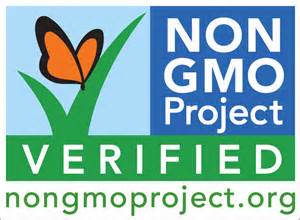 The growth of genetically modified foods continues to rise in the U.S. and around the world with the aggressive tactics of the biotech industry. This growth has contributed to an increase in invasive superweeds and rising challenges for organic farmers. GMOs have not been tested for safety for human consumption. Independent animal studies demonstrate that GMOs are hazardous to health. Consumers can use several guidelines to avoid purchasing genetically engineered food.
The growth of genetically modified foods continues to rise in the U.S. and around the world with the aggressive tactics of the biotech industry. This growth has contributed to an increase in invasive superweeds and rising challenges for organic farmers. GMOs have not been tested for safety for human consumption. Independent animal studies demonstrate that GMOs are hazardous to health. Consumers can use several guidelines to avoid purchasing genetically engineered food.
The spread of GMOs
The FDA continues to approve more genetically engineered foods, creating a growing list of foods to avoid. Seventy million hectares of GE crops were planted in the U.S. in 2012, compared to 64 million hectares in 2009.
GMOs dangerous impact
Genetically engineered, herbicide resistant crops have created superweeds, which have mutated to survive these herbicides. A 2012 survey by Stratus Agri Marketing discovered that half of US farmers have found superweeds in their field, requiring the use of older, toxic herbicides such as dicamba and 2,4-D. Both herbicides are linked to reproductive problems, birth defects and increased cancer risks.
With the increase in GE crops, organic farmers are challenged to stop cross-contamination of their crops by GE seeds and pollen spread by wind, insects, floods and machinery. The Union of Concerned Scientists estimates that organic corn growers lose $90 million of income annually from this contamination.
GE crops harms soil and the ecosystem. Research demonstrates GMO foods are toxic, allergenic and less nutritious compared to non-GMO food. The American Academy of Environmental Medicine has reported that “Several animal studies indicate serious health risks associated with GM food,” including infertility, immune problems, accelerated aging, faulty insulin regulation, and changes in major organs and the gastrointestinal system. The AAEM asked physicians to advise patients to avoid GM foods.
Avoid these four GE products: corn, soy, sugar beets and vegetable oil
90 percent of corn in the U.S is genetically modified field, with 12 percent processed into corn flour, high fructose corn syrup, corn starch, masa, corn meal and oil. These ingredients are commonly found in store-bought packaged products. Less than 1 percent of corn grown is sweet corn, known as table corn. Most sweet corn is not genetically modified, but some varieties are, making it important to buy organic.
Ninety-three percent of soybeans grown in the U.S. are genetically modified. Soybean based products are prevalent in grocery stores and include soy proteins, soybean oil, soy milk, soy sauce, tofu and soy lecithin.
Approximately 55 percent of sugar made in America is derived from sugar beets. Ninety-five percent of sugar beets are genetically engineered. Unless a product is labeled as “pure cane” sugar, it is likely to be made with genetically engineered beet sugar.
Vegetable oils that should be avoided include canola, cottonseed, soybean and corn. The majority of these oils are genetically modified.
Other GE foods
More than 75 percent of Hawaiian papaya is genetically engineered. Some zucchini and yellow summer squash varieties are genetically modified. Other foods which have been approved by the FDA or are being considered for approval for genetic engineering include salmon, flax, plums, potato, radicchio, rice, tomato, wheat, apples and new varieties of corn and soybean.
Guidelines for shopping
 Purchase questionable GE foods labeled USDA organic, which does not permit the use of GE ingredients. Look for the “Non-GMO Project Verified” label on foods. This non-profit organization provides a detailed, voluntary certification to ensure non GMO ingredients in products.
Purchase questionable GE foods labeled USDA organic, which does not permit the use of GE ingredients. Look for the “Non-GMO Project Verified” label on foods. This non-profit organization provides a detailed, voluntary certification to ensure non GMO ingredients in products.
Use this free shopping guide http://nongmoshoppingguide.com/. For a small donation, download http://nongmoshoppingguide.com/.
Conclusions
Vote with your dollars. Purchase GMO-free products and support organizations fighting for GMO labeling.
Sources for this article include:
http://www.ewg.org
http://www.responsibletechnology.org/posts/gmo-health-dangers/
http://nongmoshoppingguide.com/
http://www.organicconsumers.org/gelink.cfm
Written by Michelle Goldstein, Holistic Health to Go
Avoid eating dangerous genetically engineered foods at your dining table was first published in Natural News on March 3, 2014
